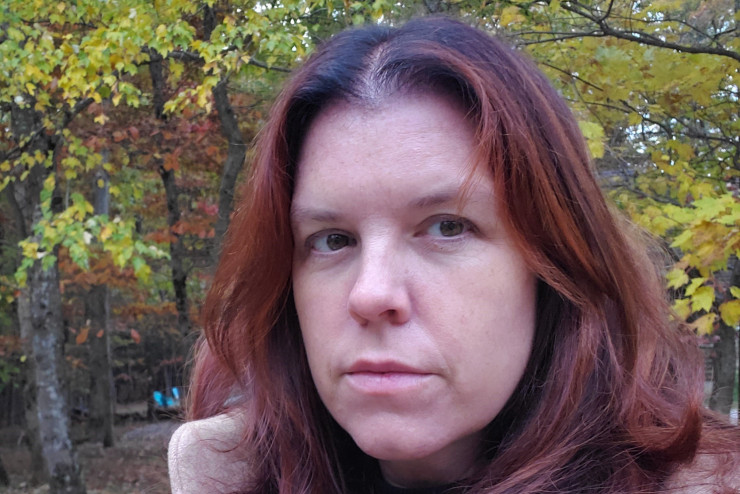
What: This course will examine two threads of cross-cultural phenomena in East Asia: Tea and Buddhism. By looking at transnational cultural, religious, economic, artistic, environmental, and historic connections through these lenses, students will gain an understanding of Taiwan and Japan across time and place. The program includes site visits to museums, temples, tea plantations, and tea houses, considering how these two long-standing cultural phenomena have evolved over time and in different locations, adapting to political, environmental, and social forces.
Where: Kyoto, Japan, Taipei, Taiwan, and surrounding communities.
When: May 13 - June 3, 2026 | Application Opening Soon!
Cost: $6500 Course Fee + $500 Deposit | Scholarships Available
Credits: 4
Program Director: Dr. Alison Miller (Associate Professor - Department of Art History | Director of Asian Studies
Program Overview
Academics
Students will receive 4 credits for the following course:
- ASIA 216–Intensive Study in Asia (4 credits) This course will examine two threads of cross-cultural phenomena in East Asia: Tea and Buddhism. By looking at transnational cultural, religious, economic, artistic, environmental, and historic connections through these lenses, students will gain an understanding of Taiwan and Japan across time and place. The program includes site visits to museums, temples, tea plantations, and tea houses, considering how these two long-standing cultural phenomena have evolved over time and in different locations, adapting to political, environmental, and social forces. Gen Ed Attribute: G7 | Program Attributes: ASIC, Asian Studies | Prerequisites: None

Japan and Taiwan Itinerary
5/15 — Osaka
Arrive and travel to the hotel. Begin orientation activities. Group dinner and early rest to recover from jet lag.
5/16 — Osaka
Continue orientation focused on health, safety, cultural considerations, and group dynamics. Afternoon opening ceremony with Buddhist script-writing at Isshin-ji Temple and a tour of Shitennoji Temple. Guest speaker on Japanese culture and religion.
5/17 — Kyoto
Travel to Kyoto. Lunch at Nishiki Market. Afternoon visit to Shunkoin Temple with a guest speaker and introduction to Zen meditation.
5/18 — Kyoto
Visit Kinkakuji (Golden Pavilion) and Ryoanji (rock garden). Observe traditional mochi-making.
5/19 — Kyoto
Early morning visit to Fushimi Inari Shrine. Afternoon exploration of the Kyoto National Museum.
5/20 — Kyoto → Nara
Day trip to Uji. Visit tea fields and learn about matcha at Chazuna Tea Center. Visit Byodoin Temple. Travel to Nara in the late afternoon.
5/21 — Nara
Silent morning visit to Todaji Temple. Discussion on tourism in sacred spaces. Afternoon free time.
5/22 — Nara
Full-day excursion to Obubu Tea Farm. Learn about Japanese tea production and enjoy a tea-themed lunch and Q&A.
5/23 — Wakayama
Visit Kimiidera Temple and take a short hike with a guest speaker on Buddhist concepts. Dinner with a tea ceremony practitioner.
5/24 — Wakayama
Visit Wakayama Castle and Bandoko Garden. Tea break at Koshoan Tea Room with Q&A on the tea ceremony and cultural preservation. Afternoon at the beach near Kada.
5/25 — Wakayama
Visit Koyasan and experience this sacred site. Afternoon reflection on lessons from Japan and preparation for transition to Taiwan. Close with a Goma sacred fire ceremony.
5/26 — Osaka → Taiwan
Travel to Osaka for international flight to Taiwan. Taiwan orientation.
5/27 — Taipei
Discussion on democracy with youth at Hua Fan University. Tea at a historical site.
5/28 — Taipei
Morning visit to the National Palace Museum. Afternoon at the Museum of World Religions. Evening with the Fo Guang Shan Youth League.
5/29 — Jinshan → Luodong
Morning visit to the World Center for Buddhist Education. Afternoon visit to the Juming Museum.
5/30 — Luodong → Hualien
Train to Hualien. Visit Tzu Chi Abode.
5/31 — Hualien → Ruisui
Visit Dance Crane Red Tea Plantation and Jilin Tea Gardens. Make your own tea at Ba Han Han Non Tea & Coffee Studio.
6/1 — Ruisui → Kaohsiung
Train to Kaohsiung. Afternoon city tour and free time.
6/2 — Kaohsiung → Chiayi
Visit the largest Buddhist park in Taiwan.
6/3 — Chiayi
Experience tea making at a Western-style tea plantation.
Reach out to Dr. Alison Miller for more information.
Fill Out the Interest Form HERE!





